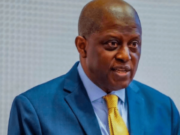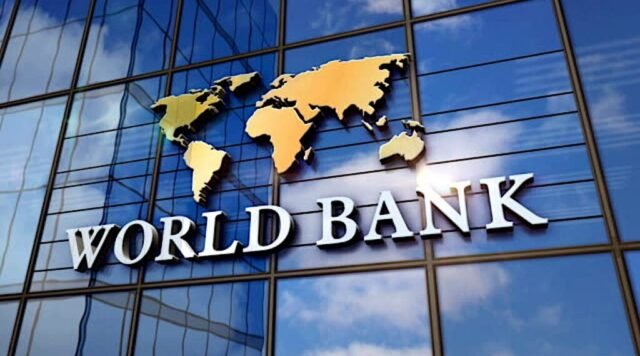The World Bank has authorized three financial initiatives summing up to $1.08 billion, to enhance economic strength, nutrition and education in Nigeria.
In an official statement issued on the World bank’s website on Wednesday, the concessional loans are intended to improve nutrition for underprivileged populations, strengthen household and community resilience, and improve the quality of education.
The statement read, “The World Bank has approved three operations in Nigeria, totalling $1.08bn in concessional financing, to enhance education quality, build household and community resilience, and improve nutrition for underserved groups.”
Among the authorised opeartions are; additional funding of $500 million for the Community Action for Resilience and Economic Stimulus Programme, $80 million for Accelerating Nutrition Results in Nigeria (ANRIN 2.0), and $500 million for the Hope for Quality Basic Education for All (HOPE-EDU) programme.

The statement further revealed that the NG-CARES Program, which was first created to alleviate the financial effects of the COVID-19 pandemic, would assist the government in increasing access to grants, food security services, and livelihood support for low-income and vulnerable households.
With more than 15 million participants to date, the program has developed into a shock-responsive platform offering multisectoral interventions like as livelihood grants, labor-intensive public works projects, social transfers, and assistance for small companies.
The additional funding will expand the program’s reach, especially as the nation struggles economically with the withdrawal of gasoline subsidies in 2023 and the unification of foreign exchange rates.

Additionally, The Accelerating Nutrition Results in Nigeria initiative seeks to increase the utilization of high-quality nutrition services for children under five, adolescent girls, pregnant women, and nursing mothers.
The programme aims to enhance food security, nutrition services, and mother and child health in certain regions. The initiative, which emphasizes preventive and curative nutrition interventions, better feeding practices, and expanded access to foods high in micronutrients, is in line with Nigeria’s National Development Plan (2021–2025) and the Multisectoral Plan of Action for Food and Nutrition.
The HOPE-EDU initiative on the other hand will improve access to basic education, boost foundational literacy and numeracy, and fortify education systems in participating states. It is part of a suite of interconnected operations.
More than 65,000 public primary schools, 500,000 instructors, and 29 million students are anticipated to directly benefit from the project. Concerns about overcrowding in schools and the dispersed distribution of educational funding will also be addressed by the project. The Global Partnership for Education Fund will provide an additional $52.18 million to HOPE-EDU.

Speaking on this development Dr Ndiamé Diop, the World Bank Country Director for Nigeria said “Investing in human capital is critical for Nigeria as it offers the best opportunity to unlock the enormous potential of Nigeria.
“These new programmes will help accelerate education quality and support vulnerable citizens. The HOPE-EDU programme will enable better education outcomes by implementing bold reforms and making the right investments to equip the fast-growing young population with foundational skills necessary for rapid and inclusive economic growth.”
According to Diop, the NG-CARES initiative will assist Nigeria in transitioning from pandemic response to long-term resilience, particularly in light of persistent economic constraints, adding that the ANRIN interventions would enhance access to micronutrient-rich foods and nutrition services at basic healthcare levels.
Join Our Social Media Channels:
WhatsApp: NaijaEyes
Facebook: NaijaEyes
Twitter: NaijaEyes
Instagram: NaijaEyes
TikTok: NaijaEyes







































[…] emphasized that although existing BEA beneficiaries will receive assistance to finish their programs, new applicants for the scholarship will not be accepted after […]
Comments are closed.